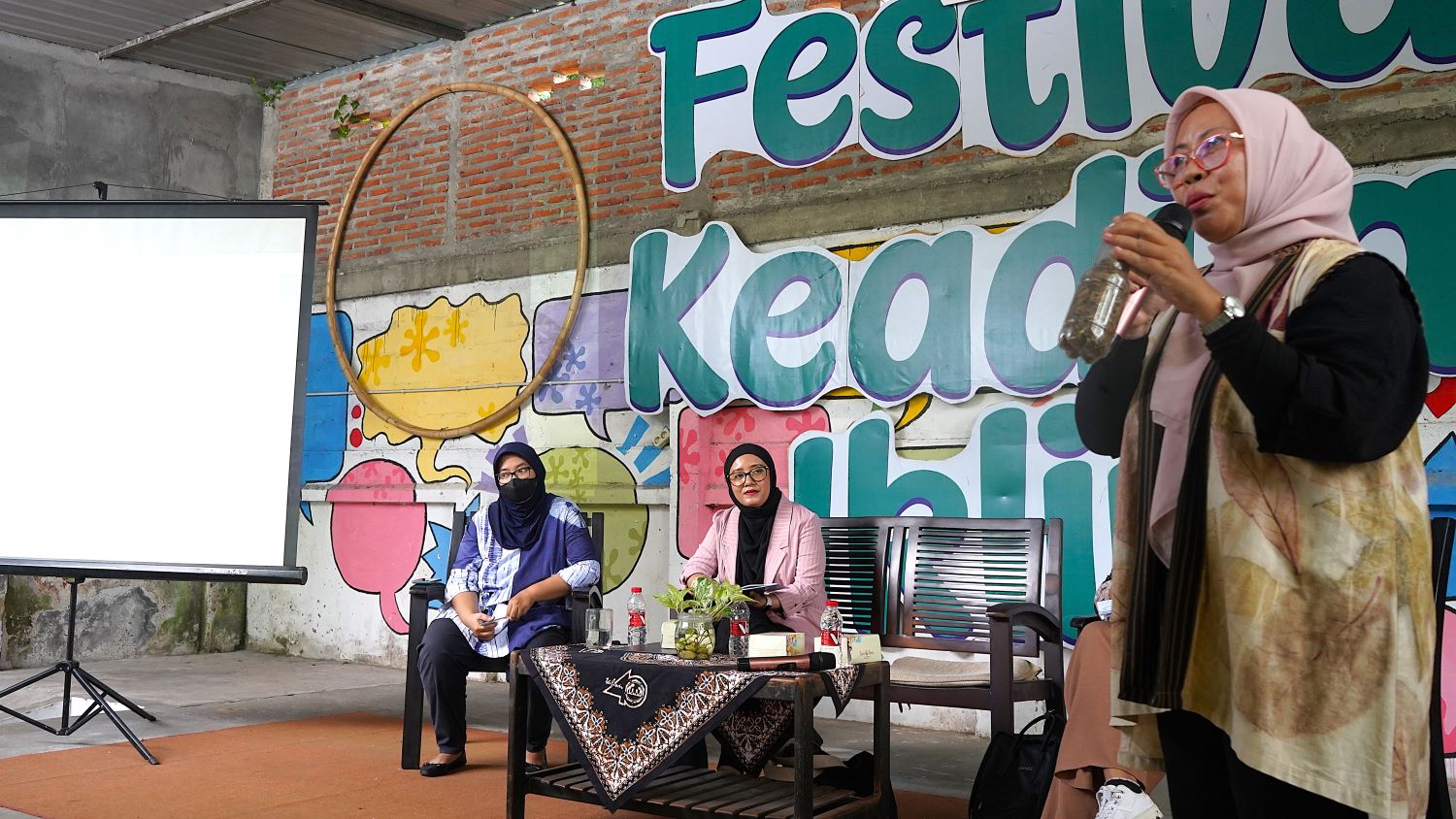May 30, 2024, Social Development Talks (SODET) together with the Indonesian Family Planning Association (PKBI) DIY held a discussion entitled “Yogya’s Mothers are Confused about Trash: Emphasizing the Role of Women in Climate Justice Issues”. The event was moderated by Mirna Yusuf M.A., a doctoral student of the Department of Social Development Talks UGM, and attended by several speakers who are experts in waste management and climate justice issues, namely Bintari Rochim from Lentera Mahika, Purwantining Tyas Fitri Kawuri from PKBI DIY, and Galih Prabaningrum, S.Sos., M.A., from Social Development Talks UGM.
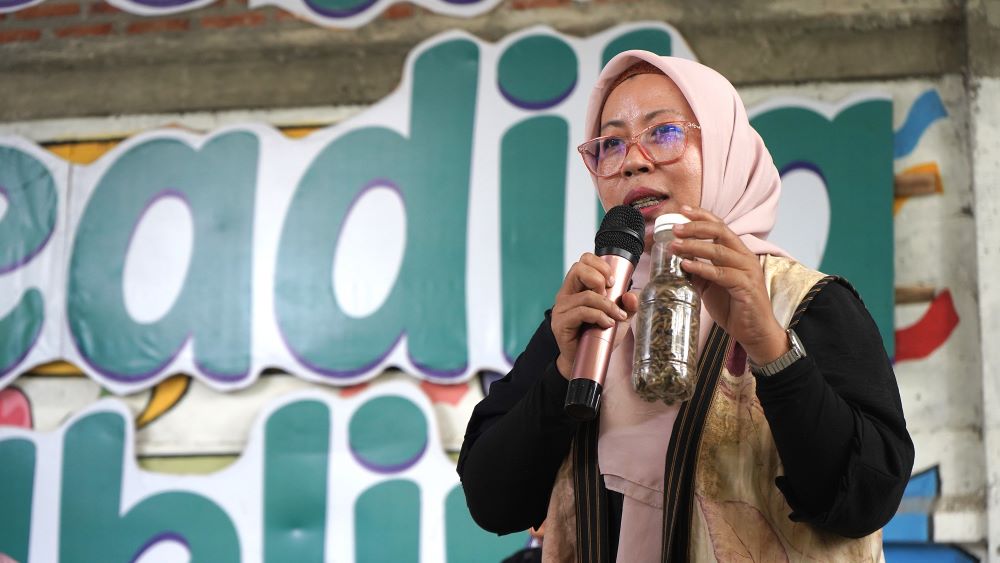
Waste Management Challenges in Yogyakarta
Bintari Rochim explained that the waste problem in Yogyakarta has been a serious issue since 2019-2020, and reached its peak in 2023 when waste collection was stopped. This has caused a significant accumulation of waste, especially in urban areas that are the center of education and tourism. This condition shows that Yogyakarta has a waste emergency.
According to Bintari, Jogja is currently in a state of waste emergency with a daily waste volume of 1133 tons, of which 61% is organic waste. To overcome this problem, effective waste management is needed directly from the source, namely households. One of the proposed solutions is the processing of organic waste into compost or energy sources, as well as the use of Maggot to increase chicken farming production.
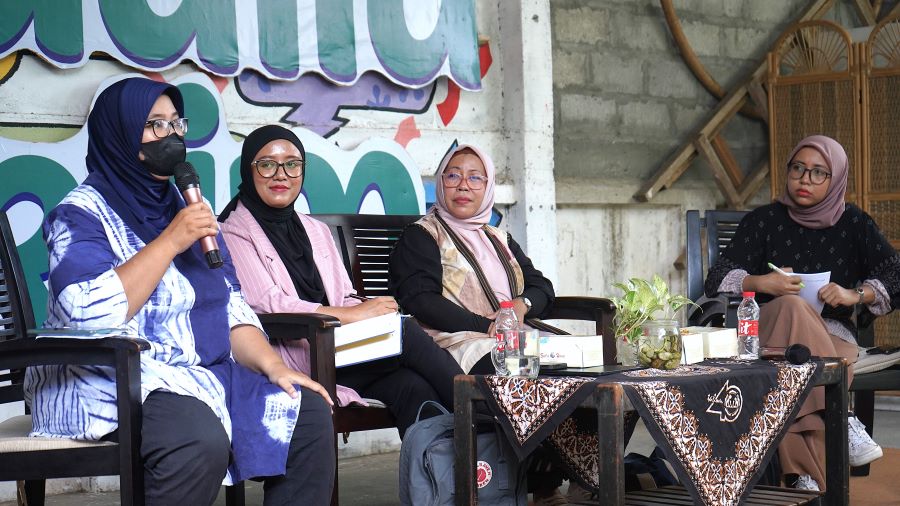
PKBI’s Role in Advocating Environmental and Reproductive Issues
Purwantining Tyas from PKBI emphasized that PKBI is not only focused on reproductive rights, but also on environmental issues that have a major influence on reproductive health. Women are often the most vulnerable group to the impacts of climate change, so their empowerment in environmental management is very important.
PKBI acts as a community partner in improving community capacity to manage waste and other environmental issues. By providing support and training, PKBI helps communities to be better prepared to face environmental challenges, especially waste management. Regarding the waste emergency issue, the community is not prepared to manage waste properly. For this reason, PKBI becomes a community to fill the gap and help increase community capacity related to waste management.
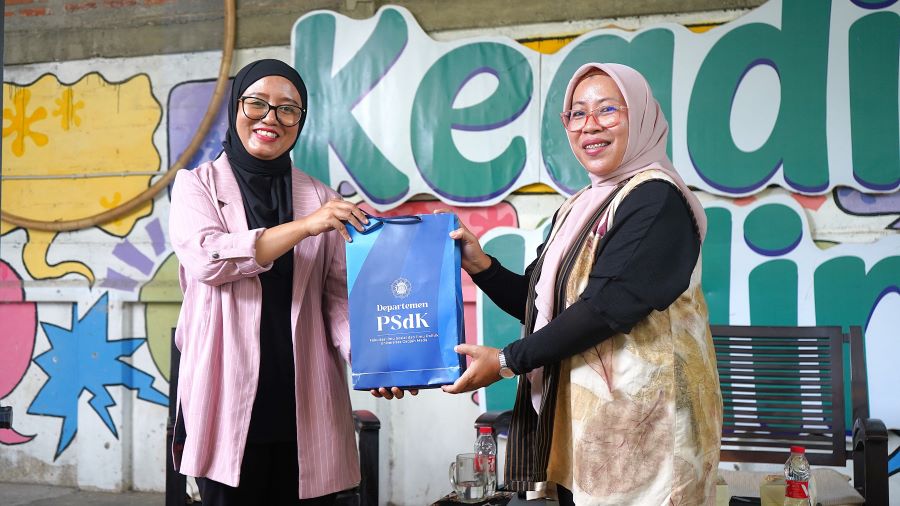
Climate Crisis and the Role of Women
Galih Prabaningrum underlined that the climate crisis often has a greater impact on women. For example, in disaster situations, women face additional challenges such as lack of access to adequate clean water for menstrual needs. Galih also mentioned that in temporary shelters, water quality is often not guaranteed, which worsens the situation for women.
According to Galih, the largest composition of waste comes from households, which means the responsibility of waste management also lies in the hands of individuals at home. Therefore, empowering women in waste management is very important. Women need to be given the capacity and space to make decisions and play an active role in environmental management.
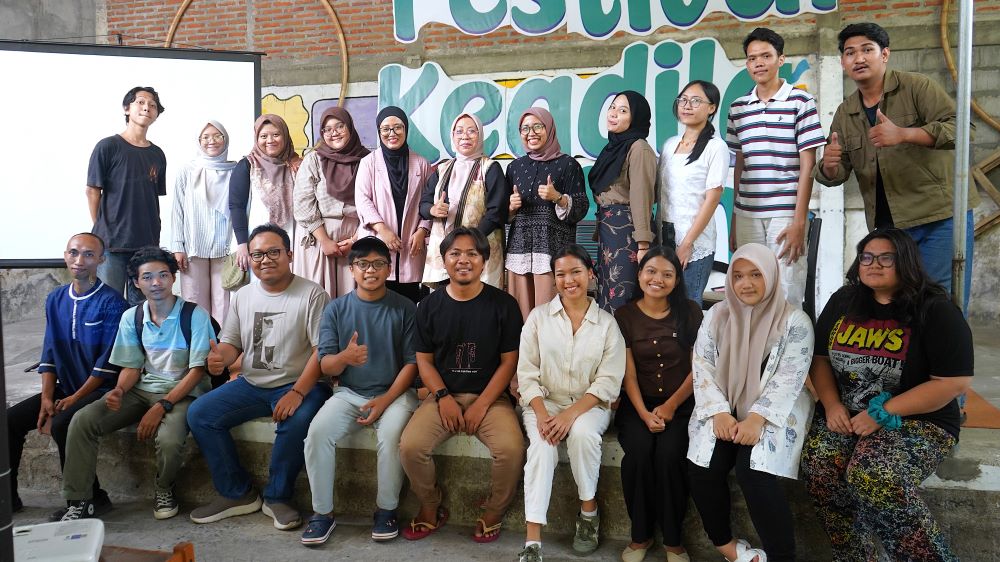
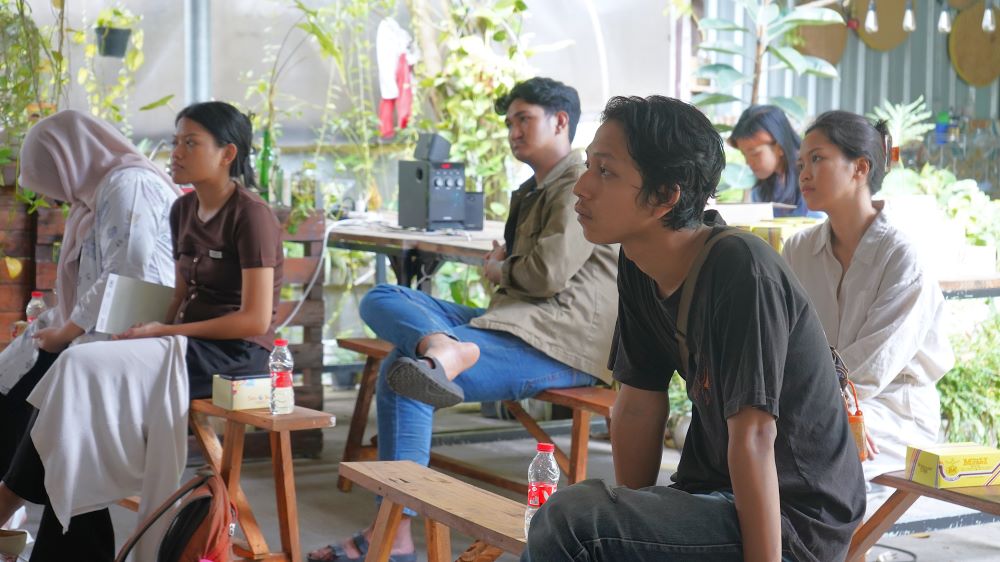
Driving Change from Home
The event concluded with an emphasis on the importance of change starting at home. Waste management must become part of everyday culture, and women play a key role in educating and driving this change. With the support of adequate infrastructure and the right policies, waste management can become an economically and socially valuable resource.
This May edition of Social Development Talks presents an overview of the crucial role of women in addressing climate justice issues, especially in the context of waste management in Yogyakarta. The active role of women, support from organizations such as PKBI, and proactive government policies are key in achieving a cleaner and more sustainable environment.
Author: Risma
Photo: Vinen
